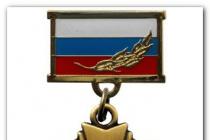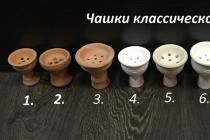Self-regulation emerged as a direction of administrative reform
From the point of view of the provisions of the law, self-regulation is understood as independent and initiative activity, which is carried out by business or professional activity and the content of which is the development and establishment of standards and rules for this activity, as well as monitoring compliance with the requirements of these standards and rules - definition from the Federal Law on SROs dated 01.12.2007
Self-regulation is necessary for the conditional association of representatives of professional activities in order to establish quality criteria for this activity
The main goal of the legislator is to get away from licensing certain types of activities, but participation in the SRO will be a condition for engaging in a certain type of activity. That. the state controls the SRO and already the SRO controls each subject - the entrepreneur.
Self-regulation itself appeared during the Middle Ages (the sources of self-regulation were in Ancient Rome but they themselves did not establish the rules for the functioning of activities) - during the period of guild law, classical forms of association of professional guilds appeared that provided for certain rules for joining membership, rules for product quality, rules for resolving disputes and conflicts regarding low-quality activities within such associations.
Then SROs were born at the end of the 19th - beginning. 20th century in the USA, then they appeared in the UK (but only in the field of financial services)
Since the 90s of the 20th century in Russia
Stage 1: from 1994 to 2002: from November 4, 1994, the Decree of the President "On measures for state regulation of the market" was adopted valuable papers in the Russian Federation" - was created by the FCSM - federal committee securities (?) (and he was given the authority to control SROs in the securities market); national association of stock market participants - the first official SRO in the Russian Federation - 1995. A feature of the legislation of SRO activities at that time is that self-regulation was a purely voluntary phenomenon
Stage 2: in 2003, the Federal Law “On Insolvency (Bankruptcy)” began to operate, which directly provided for the obligation of arbitration managers to be members of SROs in order to obtain admission to professional activities. Then, norms on self-regulation and mandatory participation in SROs for the implementation of certain activities(//appraisers, auditors, construction industry)
Mandatory self-regulation exists in the following activities:
1. Audit activity
2. Activities of arbitration managers
3. Activities in the field of credit cooperation
4. Valuation activities
5. Activities in the field of engineering surveys
6. Activities in the field of construction
7. Architectural and construction design
8. Heat supply
9. Energy survey activities
10. Activity of revision unions in agricultural cooperatives
SRO in Russia exists in 2 forms: 1- mandatory self-regulation; 2- voluntary
Mandatory - in the 10 named areas where licensing was refused and replaced with the requirements of the SRO itself
Voluntary self-regulation - by legal nature, these are associations / unions of entrepreneurs or representatives of professional activities created for mutual assistance in the implementation of activities. That. if it falls under a licensed activity, then obtaining a license is mandatory! It turns out that information exchange is carried out here within the framework of such SROs, there are no other advantages, and membership fee are made
SROs are understood as non-profit organizations created for the purpose of self-regulation (d / w is spelled out in the charter), based on membership and uniting entities entrepreneurial activity based on the unity of the production industry or uniting subjects of professional activity a certain kind.
Requirements for SRO:
1) The requirement for the legal form - d/b non-commercial. / the ideal form for SRO is an association, a union. But until March 1, 2013, there was a rule that citizens could not be members of associations, therefore, until March 1, 2013, SROs in the form of associations and unions united only legal entities. Then they began to choose the form of a non-commercial partnership, but under no circumstances can it be held responsible for its participants (members). But if the SRO establishes rules for members, it should be responsible for their actions, so they abandoned this form. Form consumer cooperative for SRO, too, did not fit. activities are aimed precisely at economic goals and not at meeting the needs of members of the cooperative. The only form that allows to implement the functions of the SRO is public association. Since March 1, 2013, by amendments to the Civil Code, individuals are allowed to join associations and unions - now all SROs are combined into these forms /
2) Requirement for members: if business entities - at least 25 members; if representatives of a certain type of professional activity - at least 100 members. The Civil Code says unless otherwise provided by law. The Federal Law on appraisers provides that at least 300 members of the FL-c. the requirement for SROs of auditors is at least 700 individuals.
3) Availability of standards and rules of business or professional activities that are mandatory for all members of the organization - they are developed and approved by the organization itself and must comply with existing standards and rules in force in a particular area.
SRO not only has the right but also the obligation to establish disciplinary measures against members of the organization who violate the requirements of standards and rules
SRO rules should set rules professional ethics, the rules established by the SRO d / b are aimed at maximum transparency and fairness of the activities of which the members of the SRO are engaged, should include provisions for the settlement of disputes
4) SRO is obliged to provide additional property liability of each of its members
5) SRO d / b is included in the register of SRO, which is maintained by the Service state registration cadastre and cartography
6) d/b paid state duty = 4000 rubles
grounds for refusal to enter into the register: non-compliance with legal requirements
3 cases of exclusion from the register:
1) the will of the SRO itself
2) liquidation of SRO as a legal entity
3) a court decision that has entered into force to exclude information about the organization from the register on the basis of its non-compliance with the requirements of the law
if such inconsistencies are revealed during inspections by state bodies, then state bodies can provide an opportunity to correct them within up to 2 months. If not corrected, then the state body can go to court and the exception will be carried out only on the basis of a court decision that has entered into force
The governing bodies formed by SROs are divided into 2 categories:
1- conditionally standard for all legal entities: General meeting of members of the organization, permanent collegial body, executive body of SRO
2- so-called specialized bodies are formed in the structure of the main ones. IN without fail 2 specialized bodies should be created:
1. body exercising control over compliance of SRO members with the requirements of the standards and rules of this organization
2. The body for reviewing cases on the application of disciplinary measures against members of the SRO / the most common punishment is a fine. There is also an exclusion from the members of the SRO /
a management body of compensation bodies and other bodies controlling the management of a particular SRO function can be created
SRO members m / b any FL and LE, taking into account the specifics of the activity for which the SRO was created. A specific person voluntarily joins the SRO. If several SROs operate on the market, then interested party can join any of these organizations. If the subject of professional activity carries out only one type of activity //auditor, then he can only join one SRO. However, if the subject implements different kinds activities //audit and evaluation - then he can join various SROs for a specific type of activity.
Any member of the SRO has the right to demand from the organization itself the implementation of the functions for which it was created.
The functions of the SRO include:
1) development and establishment of rules and membership in the organization
2) the application of disciplinary measures against members
3) the formation of arbitration courts to resolve disputes between members of the organization
4) analysis of the activities of its members and ensuring information exchange
5) is obliged to organize professional education members of the organization or their employees
6) the organization exercises control over the activities of its members, including considering complaints about their actions and cases of violation by its members of the requirements of standards and rules
7) any SRO, in terms of the requirements of the legislator, is obliged to ensure the property liability of its members to consumers and other persons. Currently, the Federal Law on SROs provides for 2 ways to similarly ensure the financial viability of a member of an organization:
1- compulsory insurance system
2- creation and proper use of a special compensation fund
Insurance: SRO members can insure their liability through both personal and collective insurance. Conditions regarding the insurance contract: it is impossible to insure in those organizations that are themselves members of this SRO or when the relevant SRO is the founder of such an insurance organization. The insurance contract must be carried out for 1 calendar year and for one member of the organization the amount of insurance is at least 30,000 rubles.
Creation of a compensation fund: each SRO can create a compensation fund, which is understood as the totality of certain types of property of this organization, which is m/b used in the event of property liability of the SRO upon the occurrence of legal facts that require the allocation of all or part of the property of such a fund. At its core, the compensation fund is a kind of mutual insurance fund where everyone insures everyone and is responsible for the obligations of everyone. The maximum size of the compensation fund is not limited. The compensation fund is formed necessarily in cash (no property, securities or claims are allowed)
Reimbursement - Subsidiary principle
The compensation fund itself can be invested, but only through management companies (that is, the SRO itself does not have the right to engage in investment). Profit from this is directed to the increment of the compensation fund itself.
Compensation fund is more often used than insurance
25.11.2014
Lecturer: Aminov Evgeny Raulevich - Ph.D. Senior Lecturer of the Department of GP
1- intellectual rights
2- Novikova or Vasiliev
Offered to issue a lot of companies. At the same time, some of them will not only prepare constituent and registration documents (including for specialists), but will also help to quickly make changes to the admission (add or exclude types of work; make changes related to a change of legal address or expansion of contracts).
The activities of self-regulatory organizations are regulated federal law dated December 1, 2007 No. 315-FZ "On self-regulatory organizations".
Under self-regulation is understood as independent and initiative activity, which is carried out by subjects of entrepreneurial or professional activity and the content of which is the development and establishment of standards and the specified activity, as well as control over compliance with the requirements of these standards and rules.
Self-regulation in accordance with this Federal Law is carried out on the terms of association of subjects of entrepreneurial or professional activity into self-regulatory organizations.
Under business entities means individual entrepreneurs and legal entities registered in accordance with the established procedure and carrying out activities determined in accordance with Civil Code RF entrepreneurial activity, and under subjects of professional activity - individuals carrying out professional activities regulated in accordance with federal laws.
Art. 3 of the said law defines that non-profit organizations created for the purposes provided for by this Federal Law and other federal laws, based on membership, uniting business entities based on the unity of the industry of production of goods (works, services) or the market for manufactured goods (works) are recognized as self-regulatory organizations. , services) or uniting subjects of professional activity of a certain type.
Consolidation in one self-regulatory organization of subjects of entrepreneurial activity and subjects of professional activity of a certain type may be provided for by federal laws.
SRO requirements:
- a non-profit organization established in accordance with the Civil Code of the Russian Federation and Federal Law No. 7-FZ of January 12, 1996 "On Non-Profit Organizations", provided that it complies with all the requirements established by this Federal Law;
- association within a self-regulatory organization as its members at least 25 entities entrepreneurial activity or at least 100 subjects professional activity of a certain type, unless otherwise provided by federal laws;
- the existence of standards and rules for entrepreneurial or professional activities that are mandatory for all members of a self-regulatory organization;
- provision by the self-regulatory organization of additional property liability of each of its members to consumers of goods (works, services) produced and to other persons in accordance with Article 13 of the Federal Law.
Unless otherwise established by federal law, in order to carry out activities as a self-regulatory organization, a non-profit organization must create specialized bodies that monitor compliance by members of the self-regulatory organization with the requirements of the standards and rules of entrepreneurial or professional activity and consider cases of application to members of the self-regulatory organization disciplinary measures provided for by the internal documents of the self-regulatory organization.
Non-profit organization acquires the status of a self-regulatory organization from the date of entering information about non-profit organization V State Register self-regulatory organizations and loses the status of a self-regulatory organization from the date of exclusion of information about the non-profit organization from the specified register.
The purpose of the SRO- self-regulation of entrepreneurial or professional activities of entities united in this organization.
Self-regulatory organization:
- develops and approves standards and rules for entrepreneurial or professional activity (other requirements, standards and rules may be established by federal laws);
- on its own behalf and in the interests of its members, they have the right to apply to the court with an application for declaring as invalid a non-conforming federal law, the obligation to comply with which is assigned to members of a self-regulatory organization;
- should establish disciplinary measures against members of the organization for violating the requirements of the standards and rules of the self-regulatory organization, as well as ensure information transparency affecting the rights and legitimate interests of any person of the activities of members of the self-regulatory organization.
The main functions of the SRO:
- develops and establishes the terms of membership subjects of entrepreneurial or professional activity in a self-regulatory organization;
- takes disciplinary action provided for by this Federal Law and internal documents of the self-regulatory organization, in relation to its members;
- forms arbitration courts to resolve disputes arising between members of the self-regulatory organization, as well as between them and consumers of goods (works, services) produced by members of the self-regulatory organization, other persons, in accordance with the legislation on arbitration courts;
- analyzes activities of its members on the basis of information submitted by them to the self-regulatory organization in the form of reports in the manner prescribed by the charter of the non-profit organization or other document approved by the decision general meeting members of a self-regulatory organization;
- represents the interests of members self-regulatory organization in their relations with the authorities state power of the Russian Federation, state authorities of the subjects of the Russian Federation, bodies local government;
- organizes vocational training, certification employees of members of a self-regulatory organization or certification of goods (works, services) produced by members of a self-regulatory organization, unless otherwise established by federal laws;
- provides information openness activities of its members, publishes information about this activity in the manner prescribed by this Federal Law and internal documents of the self-regulatory organization;
- exercises control for the entrepreneurial or professional activities of its members in terms of their compliance with the requirements of the standards and rules of the self-regulatory organization, the terms of membership in the self-regulatory organization;
- considers complaints on the actions of members of a self-regulatory organization and cases of violation by its members of the requirements of the standards and rules of a self-regulatory organization, the terms of membership in a self-regulatory organization.
The self-regulatory organization has the right:
- challenge on its own behalf in accordance with the procedure established by the legislation of the Russian Federation any acts, decisions and (or) actions (inaction) of state authorities of the Russian Federation, state authorities of subjects of the Russian Federation and local authorities violating the rights and legitimate interests of the self-regulatory organization, its member or members or creating a threat of such violation;
- participate in project discussions federal laws and other regulatory legal acts of the Russian Federation, laws and other regulatory legal acts of the constituent entities of the Russian Federation, state programs on issues related to the subject of self-regulation, as well as to send to the state authorities of the Russian Federation, state authorities of the constituent entities of the Russian Federation and local authorities opinions on the results of ongoing by its independent expertise of draft normative legal acts;
- submit for consideration authorities and local self-government bodies proposals on the formation and implementation, respectively public policy and the policy implemented by local governments in relation to the subject of self-regulation;
- to request information from authorities and local self-government bodies and receive from these bodies the information necessary for the self-regulatory organization to perform the functions assigned to it by federal laws, in the manner prescribed by federal laws.
Self-regulatory organization not entitled carry out activities and take actions that entail the emergence of a conflict of interests of the self-regulatory organization and the interests of its members or create a threat of such a conflict.
Self-regulation is understood as independent and initiative activity, which is carried out by subjects of entrepreneurial or professional activity and the content of which is the development and establishment of standards and rules for this activity, as well as control over compliance with the requirements of these standards and rules. Based this definition standardization and control - the main components of self-regulation.
The main legislative act of this sphere of public relations is the Federal Law of December 1, 2007 No. 315-F3 "On Self-Regulatory Organizations". It should be noted that the adoption of this Law was the beginning of the reform of the entire system state regulation entrepreneurship. In a number of areas, there has been a transition from such a traditionally used method of state influence on business as licensing, to self-regulation. E. P. Sukhov rightly notes that self-regulation is designed to “eliminate excessive state influence by switching mainly to indirect methods regulation of economic processes, expand the share of participation of the business community in the preparation of decisions of public authorities.
It is important that the SRO Law appeared at a time when Russia had already accumulated significant experience in uniting market entities into professional communities, and traditions of self-regulation had developed. In addition, the positive experience of the activities of professional self-regulatory organizations in foreign countries. According to the definition accepted in international practice, a Self-Regulating Organization (Self-Regulating Organizations) is an organization that exercises some degree of regulatory power over a certain area of activity.
It seems that the need for the emergence of a single Law on SROs was dictated by the introduction into legislative acts of the requirement for mandatory membership in self-regulatory organizations for subjects of certain types of entrepreneurial and professional activities. At the same time, as N. G. Semilyutina rightly notes, “there is a significant number of organizations that actually facilitate business activities by developing standards, indicative indicators that take actions that contribute to protecting the interests of consumers and improving the quality of services provided, which are not registered as SROs and do not seek to acquire the formal status of SROs. Chambers of commerce and industry, the Association of Russian Banks, the Russian Union of Industrialists and Entrepreneurs, OPORA RUSSIA and a number of similar organizations that unite entrepreneurs on various grounds can serve as an example of this. In this regard, it seems that one can say about self-regulation and self-regulatory organizations in the broad and narrow sense of the word. The creation of self-regulatory organizations subject to the requirements of the Law on SROs, or self-regulation in its narrow meaning, determined by the named law, should be carried out when this is a requirement of the law and is one of the areas of regulation of entrepreneurial activity.
Features of self-regulation of certain types of entrepreneurial and professional activities are determined by special legislation. Such features include, for example, Urban planning code Russian Federation (GRK RF), Federal Law of October 26, 2002 No. 127-FZ “On Insolvency (Bankruptcy)”, Federal Law of December 30, 2008 No. 307-FZ “On Auditing”, Federal Law of July 29, 1998 No. 135-FZ "On appraisal activities”, Federal Law of November 23, 2009 No. 261-FZ “On Energy Saving and Improving Energy Efficiency and on Amendments to Certain Legislative Acts of the Russian Federation”, Federal Law of July 27, 2010 No. 190-FZ “On Heat Supply”, Federal Law No. 193-FZ of December 8, 1995 “On Agricultural Cooperation”, Federal Law No. 39-FZ of April 22, 1996 “On the Securities Market”, Federal Law No. 38-FZ of March 13, 2006 “On Advertising " and etc.
Self-regulation is carried out on the terms of association of subjects of entrepreneurial or professional activity in self-regulatory organizations (hereinafter referred to as SROs). Subject self-regulation is an entrepreneurial or professional activity of entities united in SROs. Essence self-regulation lies in the fact that the state transfers certain functions of state regulation of entrepreneurial and professional activities to self-regulatory organizations.
As the Constitutional Court of the Russian Federation pointed out, “The Constitution of the Russian Federation does not prohibit the state from delegating powers executive bodies authorities non-governmental organizations participating in the performance of certain functions of public authority. Within the meaning of its articles 78 (parts 2 and 3) and 132 (part 2), such a transfer is possible provided that it does not contradict the Constitution of the Russian Federation and federal laws. .
This legal position was further confirmed in the acts of the Constitutional Court of the Russian Federation: “The constitutional principle of a democratic legal state and the freedom guaranteed by the Constitution of the Russian Federation economic activity presuppose the development of the principles of self-government and autonomy necessary for the formation of civil society in economic sphere, a manifestation of which is the creation of self-regulatory organizations ... This, however, does not mean that the state waives both its constitutional authority to establish legal framework single market, especially in cases where representatives of a particular profession are endowed with public law functions, and the self-regulatory organizations formed by them are vested with the right to develop and establish rules of professional activity binding on their members, and from the constitutional authority to influence the content of legal norms adopted self-regulatory organizations, through judicial normative control, as well as otherwise (Article 46 Part 1; Article 120 Part 2; Article 129 Part 5 of the Constitution of the Russian Federation”) .
Membership of subjects of entrepreneurial or professional activity in an SRO is voluntary . However, federal laws may provide for cases of mandatory membership of subjects of entrepreneurial or professional activities in SROs for the implementation of entrepreneurial or professional activities of a certain type. So, compulsory membership provided for in SROs of auditors, appraisers, arbitration managers, audit unions of agricultural cooperatives, SROs in the field of engineering surveys, architectural and construction design, construction, reconstruction, overhaul capital construction projects, in the field of heat supply, in the field of energy inspection.
constitutionality statutory mandatory membership in the SRO is confirmed by the Constitutional Court of the Russian Federation: “Due to the fact that public law functions are assigned to self-regulatory organizations of arbitration managers, the following from Art. 30 of the Constitution of the Russian Federation, the principle of voluntariness, characteristic of associations that are created by citizens solely on the basis of a community of interests " .
This legal position of the Constitutional Court of the Russian Federation was subsequently confirmed in relation to SROs of appraisers, auditors, etc.
In theory, there are three models of self-regulation: voluntary, delegated and mixed. It seems that the applied model of self-regulation largely depends on whether membership in the SRO for a subject of professional or entrepreneurial activity is voluntary or mandatory.
Similar information.
An intermediate position between the system of centralized management of the economy by the state and a decentralized, relatively spontaneous market organization is occupied by self-regulation organizations.
The legislator understands self-regulation as an independent and proactive activity that is carried out by subjects of entrepreneurial or other activities, the content of which is the development and establishment of standards and rules for this activity, as well as control over compliance with the requirements of these standards and rules. The state thus withdraws from the process of direct regulation, leaving behind the function of an arbitrator in relations between producer institutions - self-regulatory organizations and consumers.
As the experience of developed countries shows, self-regulation to a certain extent can become an effective alternative to government intervention.
As a result of the functioning of self-regulation organizations, maximum consideration is given to the interests of economic entities - direct participants in socio-economic processes. This means that economic agents can realize their economic potential to a greater extent, thereby contributing to economic growth generally. In addition, the effectiveness of self-regulation norms stimulates the reduction of public spending on state regulation, in some cases leads to greater flexibility and maneuverability of public administration.
Self-regulation involves the regulation of certain areas by economic agents themselves, without the direct direct intervention of the state.
Self-regulation is a rather complex institution that combines forms of administrative and corporate regulation. The process of self-regulation in a broad sense can include all regulatory documents or principles used in the activities of an association of firms or any individual company and containing provisions that are not directly provided for by law.
The principles of self-regulation usually provide for the establishment of certain "rules of the game" of market participants, which restrict to a certain extent the freedom of economic agents, including sanctions for violation of these rules, mechanisms for resolving conflicts between market participants.
Self-regulatory norms can supplement, expand or even tighten the norms of state regulation. In some cases, self-regulation operates in those areas where, for whatever reason, there is no formal legislative regulation.
Self-regulation is defined as a hybrid form of institutional arrangements. In our opinion, self-regulatory organizations have a fairly independent institutional form, since they represent stable and fairly formal "rules of the game" in a certain economic niche.
At their core, self-regulatory organizations are informal institutions, which in some cases can be "patronized" by the state.
Here one should not introduce terminological confusion between a self-regulatory organization and a self-regulation organization, since any business structure issuing internal regulation is self-regulating, and this is only a special case of self-regulation. Self-regulation, in fact, is a much broader concept, covering the entire spectrum of regulatory and regulated relations, which are not just outside the state regulation, but are formed between business structures without the participation of an external party.
The formation of self-regulatory organizations can be of a different nature. They arise both as a result of the transfer of part of the powers of state bodies, and can be newly formed structures. At the same time, the creators and ideologists of self-regulation structures are usually the entrepreneurial structures themselves, but the state can also initiate the creation of such organizations. The need to create self-regulatory organizations may come from "the need to cover the limited operation of the mechanism of state regulation.
At the same time, the self-regulation organization’s awareness of this fact can be a reaction to the danger of tightening state regulation. "One of the first reasons for the existence of self-regulation organizations in Russia is to protect the interests of business entities. In this case, the motive for creating such structures is the need to combine individual efforts, achieve a greater effect from joint, collective actions, which are based on voluntariness.United in this way, the carriers of agreed economic interests are united in associations, unions.
Self-regulatory organizations in have their roots in trade unions formed from public organizations. At an early stage of their development, they had a rather narrow range of tasks and functions. IN modern conditions self-regulatory organizations develop and establish industry standards, insurance rules, certification of specialists, conduct analytical work, for example, in the case of the All-Russian Union of Motor Insurers, they also solve financial issues. Modern self-regulatory organizations work in close relationship with state bodies, including in terms of legislative activity.
The Civil Decree sees Lloyd as a self-regulatory body in the insurance market. Lloyd's syndicates must have a financial guarantee (deposit of £250,000) from at least two active syndicates. Each syndicate has limits on the collection of insurance premiums, the amount of which depends on the amount of the guaranteed cash deposit. Based on the amount of the deposit and the established limit of insurance payments, the Lloyd's Council establishes a qualified level financial resources insurance syndicate and thereby agrees to certain volumes of risk ceding.
Self-regulatory organizations can also set rather narrow, specific tasks. For example, increase financial capacity, thereby help to increase financial stability business entities.
Of course, the organization of self-regulation provides certain advantages for economic agents, since it allows them to actively influence the regulatory mechanism. economic activity.
Self-regulation significantly facilitates the process of regulating the economy for state structures management. And finally, the result of self-regulation is an increase in the efficiency of regulation of socio-economic processes at the macro level.
First of all, optimality is achieved by saving public funds, reducing the cost of resolving economic disputes due to the adaptation of dispute resolution procedures to specific conditions.
In addition, the imposed sanctions tend to be more effective and less repulsive. The norms of self-regulation are more flexible than the state ones, the necessary changes can be made at a lower cost. The effectiveness of self-regulation is achieved through the possible impact (and sometimes "pressure") on the mechanism of state regulation.
At the same time, self-regulatory organizations cannot be considered as a panacea, since they still have a limited effect. For example, the norms of self-regulation spread within the community without affecting the activities of non-members of the organization - outsiders. Sometimes self-regulatory organizations may only pursue the goal of lobbying the interests of their members. Membership in such organizations can take on the character of an "entry barrier" to a certain market, and can also be used as a tool to fight competitors. One of the negative aspects of the introduction of self-regulation may be the effect of "double regulation".
However, this fact can be quickly eliminated due to the self-tuning mechanism inherent in the very nature of self-regulation organizations. When organizing self-regulation in competitive industries it is necessary to control the prevention of the facts of possible legislative consolidation of the advantages (competences) of individual economic entities. In this case, the role of antimonopoly bodies increases.
In an emerging market, self-regulation cannot replace government regulation because corporate culture is in its infancy. At the same time, there is a tendency to transfer some functions of state regulation to the level of self-regulation. This form of regulatory convergence is possible, but only in an evolutionary way. Otherwise, there is a threat of turning self-regulatory organizations into marginal, semi-state structures.
According to Article 2 of Federal Law No. 315-FZ “On Self-Regulatory Organizations” (hereinafter referred to as 315-FZ), “self-regulation is understood as independent and initiative activity that is carried out by subjects of entrepreneurial or professional activity and the content of which is the development and establishment of standards and rules for the specified activities, as well as monitoring compliance with the requirements of these standards and rules. Self-regulation is carried out on the terms of association of subjects of entrepreneurial or professional activity in self-regulatory organizations (SROs).
In other words, SROs that unite legal entities and individual entrepreneurs, or subjects of professional activity of the same type, themselves establish the rules for doing business in their industry, control their observance and the application of sanctions to violators, and provide pre-trial resolution of disputes. This ensures minimal state intervention in market activity.
There are two main forms of self-regulation: A) voluntary - when a group of economic agents sets its requirements and ensures their implementation. An example of such groups can be associations, united enterprises and individual entrepreneurs on a professional basis. They develop their own rules, codes and implement them on a voluntary basis, also fulfilling all the requirements of the legislation in their field of activity. B) delegated - the state transfers a number of functions for regulating activities in the industry to self-regulatory organizations (SROs), exercising supervision not over the activities of enterprises, but SROs in which they are members. At the same time, the state fixes the minimum requirements that SROs, their documents, admission rules, etc. must comply with. And membership in the SRO becomes mandatory for business entities in the industry. On this basis, self-regulatory organizations of arbitration managers and appraisers are already operating in Russia. Federal Law No. 148-FZ "On Amendments to the Town Planning Code and Certain Legislative Acts" (hereinafter - 148-FZ) establishes another industry where the regulation of activities is transferred to the SRO - construction. 148-FZ established three types of SROs in construction: 1) self-regulatory organizations based on membership of persons performing engineering survey; 2) self-regulatory organizations based on the membership of persons providing training project documentation; 3) self-regulatory organizations based on the membership of persons carrying out construction. According to the law 148-FZ, non-commercial partnership in order to acquire the status of an SRO, it must meet a number of requirements: 1) to unite at least 100 members ( construction organizations), or 50 members (survey and design organizations); 2) availability of a compensation fund. (see below); 3) availability of a package of documents:
- requirements for the issuance of certificates of admission to work that affect the safety of capital construction projects. They establish the conditions for the issuance of certificates of admission by a self-regulatory organization;
- rules of control in the field of self-regulation, establishing rules for monitoring compliance by members of a self-regulatory organization with the requirements for issuing certificates of admission, the requirements of the standards of self-regulatory organizations and self-regulation rules;
- a document establishing a system of disciplinary measures for non-compliance by SRO members with the requirements for issuing certificates of admission, control rules in the field of self-regulation, requirements technical regulations, requirements of standards and rules of SRO;
- as well as a copy of the certificate of state registration and the charter of the NPO; certified by the NGO copies of documents confirming the state registration of its members - legal entities, as well as copies of certificates of state registration of its members - individual entrepreneurs (hereinafter referred to as IP); a list of NPO members indicating the type of entrepreneurial or professional activity they carry out, which is the subject of self-regulation; documents confirming that the NCO has legally provided methods for ensuring the responsibility of members to consumers of goods (works, services) produced and other persons.














